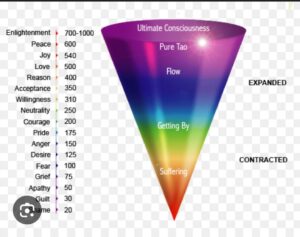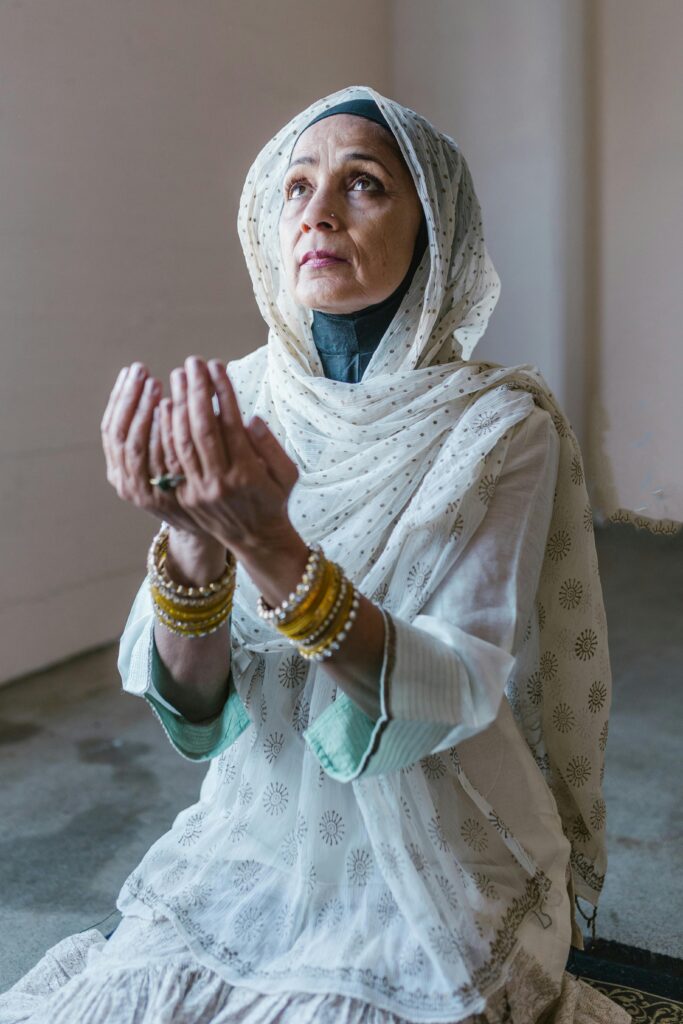Forgiveness is something that everyone will have to engage with at some point in their life. Whether one has to forgive or be forgiven, it is a somewhat inevitable part of life.
From a very tender age, I carried around a lot of heavy burdens. I was introduced to forgiveness when still very young, even though I couldn’t fully understand the deeper meaning behind the concept, at least not to the extent that I now do.
As a child who was heavily burdened, I was already dabbling heavily into religion in my teens because religion promised to make my yoke easy so to speak. So early on, my religion taught me that if I wanted to be forgiven, I also needed to forgive. In other words, I could not ask for forgiveness if I didn’t make it a point to forgive others, otherwise my prayers were pointless. So I did it as a trade-off, in a way.
Let’s explore ‘forgiveness’ for a little bit. What does forgiving mean, and how far can the process go? To forgive means to ‘stop feeling angry or resentful towards someone for an offense, flaw, or mistake’. Generally, when someone has offended or hurt us we tend to feel angry, resentful, or bitter about the offense and we may want to revenge or punish them for how we think they made us feel. However, forgiveness means we must intentionally decide to let go of the resentment and anger towards that person. I might also add that the sooner we do that the better.
Even though from a religious point of view I knew that I had to forgive so that I could also be forgiven, in some cases, I didn’t understand why I continued to feel the hurt even after so many years. Something was still missing in my understanding because I hadn’t quite healed in the way I had hoped.
I began to look into psychology, self-help, and spirituality for different perspectives on forgiveness beyond what my religion taught me. I started learning that forgiveness is something you do for yourself, not for the other person. You do not forgive because what they did was right or because they asked for it. Most of us have suffered a lot of pain at the hands of people who never apologized, yet we must make it a point to forgive every single time. For a lot of people forgiveness is a bit tricky because they misunderstand it to mean that 1) the person gets away with it; 2) The behavior is condoned now that they have forgiven the person; 3) to show that they have forgiven they should continue to relate with that person as if nothing happened, this one is big, especially with family members; 4) or that they should say I forgive you to the face of their perpetrators.
Self-help taught me that forgiveness is a process. It is not a once-off act, why? because the act that hurt or offended you might always be with you, for years or even a lifetime. Some of the things that have to be forgiven run deep, and have left huge scars on their victims. Also, there are layers to forgiveness.
It was self-help books and coaches that taught me that it is beneficial to forgive someone or a situation that caused us harm because when we forgive we also release the anger, the pain, the hurt, the resentment, and the bitterness. At first, I struggled to understand why me forgiving someone who hurt me works for me. I didn’t understand how harboring certain emotions related to unforgiveness was toxic to my own mental health and well-being. It turns out forgiveness frees us from that toxicity because we become less defined by the circumstances or people that hurt us. If we do not forgive the bitterness not only lingers on, but we create and live our lives from a place of bitterness and resentment. It then affects our confidence, taints our relationships, and molds our personalities as well. If you have seen or experienced a bitter, resentful, or hateful person in your life then you know that that person has a lot of forgiveness work to do. People are not bitter or resentful for no apparent reason. It just means they have allowed whatever hurt inflicted upon them to define who they are. To not be defined by the things that other people have done to us is easier said than done though. It requires one to change their perspective and gain a higher level of understanding and consciousness around the subject. It is quite a process to arrive at this point because as humans we tend to want to hold on to the pain. It somehow justifies our continued bitterness towards them.
Forgiveness of the Self
When we think of the word ‘forgiveness’ we immediately think about it as something we have to do for another, not for ourselves. It’s almost always directed outward. However, it turns out that forgiving oneself is the most understated and yet essential form of forgiveness.
We can look at forgiveness of oneself in two examples;
First example: Let’s say that your long-term partner decides to dump you for someone else, maybe someone younger or more beautiful, someone with more money and may be in a position of power than you, whatever the case might be. You are filled with pain and disbelief at how they could do something like that to you after what you have been through with them. Somehow, even after a while of sitting in this pain you’re not only angry and bitter but there is also an element of shame, guilt, and self-blame that you may not even be aware of. The shame, guilt, and self-loathing may be something that you are not aware of initially because those emotions come as a result of what we tell ourselves about our story. It’s almost always two-layered. It’s a thing we do as humans where we tell ourselves stories about ourselves and believe them as gospel truth, as a result of something that others did to us, and these stories may not necessarily be true at all. For example, now you are not only in pain because your ex dumped you but there’s a story that you tell yourself that says; he dumped me because I am not good enough, I am not pretty enough, I am not worthy enough, I don’t have what it takes to be a great partner, blah blah blah. And more often than not it is the negative stories that we tell ourselves about ourselves, that cut even deeper than the simple act of being dumped. Enter forgiveness. Now you do not only have your ex to forgive but yourself for thinking and believing that you are a worthless person just because your partner dumped you. And for you to do this you would have to become aware, very aware that you’re doing it to yourself. Most people are not aware of the fact that what hurts the most is the stories that they tell themselves about their experiences. More often than not the stories and thoughts are insidious and run in our subconscious mind, where we may not be able to easily detect them. You would have to be an observer of your mind to notice these thoughts.
Second example; Let’s say the tables are turned and it’s you who has dumped your ex, and your ex goes and does the unthinkable, s/he ‘unalives’ her/himself. Morbid. I know. But stay with me. So now you are riddled with fear, and shame and the guilt is unbearable, as everyone blames you, judges, and criticises you for your ex having done the inconceivable. Similarly, you begin to tell yourself stories, or worse yet you believe what your crucifiers say, that you are the worst person to ever walk the planet, that what you did is unforgivable, and that you deserve the worst punishment ever. Where I come from, most people don’t seek out psychological help in these situations. That’s why this kind of heaviness could potentially stay with a person for weeks months and years. Still in this scenario, it is you who needs your forgiveness more than anyone else’s. At this point even if you may have prayed and others have prayed for your forgiveness, it won’t make much of a difference until YOU forgive yourself. Trust me even God’s forgiveness won’t be enough. Because until you re-write the stories in your mind and change your perspective and beliefs about what happened it won’t make any difference at all. Most people walk around carrying guilt and shame for the things they have long been forgiven for. They become prisoners for situations that should’ve been just lessons, not life sentences.
So, when a person has committed an offense or terrible acts against another, the emotions evoked are usually guilt; shame; and self-loathing, unless of course, one is a clinical psychopath or a narcissist. Otherwise, it is common for a normal person to feel these emotions after having ‘wounded’ another.
The reason why it is difficult to forgive oneself is because the energies around feelings of shame, guilt, and self-loathing are the densest and heaviest of all the emotions in the spectrum of emotions.
According to Dr. David R. Hawkins, a renowned psychiatrist, physician, researcher, spiritual teacher, and lecturer, there are sixteen (16) levels of consciousness. He came up with what he calls a ‘map of consciousness’. The Map of Consciousness is a numeric scale that David R. Hawkins developed after discovering that human consciousness can be accurately described using a spectrum. The spectrum of human consciousness is analogous to the spectrum of visible light where certain frequencies are expressed as different colors.
The graph below illustrates the different states and their levels of frequencies.

As seen above, shame and guilt are the densest most darkest, and heaviest emotions one can carry. It is not anger, pride, or fear. Similarly, releasing these emotions is not an easy feat once embedded into a person’s psyche. Once someone describes themselves as shameful or guilty and unworthy it is a challenge to pull them out of that state of consciousness. Harboring these emotions for prolonged periods is detrimental to one’s mental and physical health, and they are usually held by people who find it difficult to forgive themselves. In this state of consciousness, there is a lot of suffering and pain. That is why it is said that when you forgive you truly do it for yourself, not the other.

